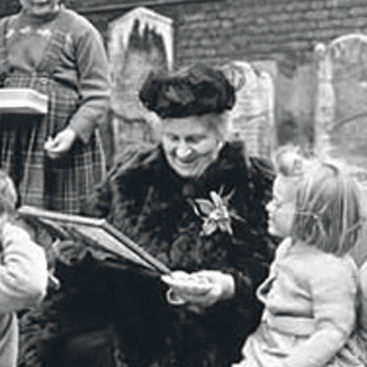Talent Montessori Philosophy
Home / Talent Montessori Philosophy
Talent Montessori Philosophy
The Montessori Philosophy, at the heart of the Talent Montessori Philosophy, is inspired by Maria Montessori’s profound observations about children’s innate potential. Her approach highlights key principles that nurture natural development, independence, and a lifelong love of learning.

Natural Spirituality
Maria Montessori believed that children possess an innate spirituality capable of transforming the world. She discovered that children are naturally good and connected to their surroundings. If allowed to fully develop, children exhibit remarkable empathy, care for others, and a strong bond with the world. Montessori observed that adults should guide children to reach their full potential while respecting their spiritual nature. She envisioned children as catalysts, inspiring adults to rediscover a harmonious and divine way of living.

The Role of Order in Learning
Order plays a crucial role in a child’s development. Montessori emphasized creating an environment where everything has its place, helping children feel secure and confident. A well-ordered classroom enables children to explore freely and build on existing experiences. Within the Talent Montessori Philosophy, structured environments foster independence and allow children to develop at their own pace.
Sensitive Periods of Development
Montessori identified distinct “sensitive periods” in children’s development. During these periods, children are naturally drawn to mastering specific skills such as language, movement, or social interaction. Teachers within the Talent Montessori Philosophy observe and support these moments, ensuring children are free to follow their natural interests and achieve exceptional growth during these critical windows.
Sensitive Periods of Development
Montessori identified distinct “sensitive periods” in children’s development. During these periods, children are naturally drawn to mastering specific skills such as language, movement, or social interaction. Teachers within the Talent Montessori Philosophy observe and support these moments, ensuring children are free to follow their natural interests and achieve exceptional growth during these critical windows.
Learning Through the Senses
Children learn by engaging their senses. Maria Montessori designed interactive materials that isolate and enhance sensory experiences, helping children build their understanding of the world. Within the Talent Montessori Philosophy, beautifully crafted materials encourage exploration, creativity, and deeper learning. These timeless tools remain relevant in modern education, fostering curiosity and joy in discovery.
Freedom and Creativity
Freedom is at the core of the Talent Montessori Philosophy, allowing children to develop as natural, creative individuals. Montessori emphasized creating environments where children are free to follow their instincts and interests, fostering confidence and self-direction. This approach transforms children into active, curious learners who thrive in a supportive setting.
Cultural Absorption
Children naturally absorb the culture around them. Montessori observed that when children are given the freedom to focus, they develop love, honesty, and harmony within themselves and their communities. The Talent Montessori Philosophy nurtures this natural ability, allowing children to grow into compassionate individuals who value discipline and cooperation.
The Role of Teachers
In the Montessori method, teachers are guides, known as “Directresses.” They observe and support children’s growth without controlling their actions. Within the Talent Montessori Philosophy, teachers focus on their personal development and sensitivity to each child’s needs, ensuring that children’s natural energy and potential are nurtured rather than restricted.
Collaborative Learning
The Talent Montessori Philosophy promotes collaborative learning by encouraging mixed-age groups to work together. Younger children learn by observing and interacting with older peers, while older children reinforce their knowledge by teaching others. This approach creates a supportive, inclusive community where children thrive through mutual respect and cooperation.
Natural Learners
Children are happiest when they follow their natural impulses. Montessori observed that children work for the joy of the activity, often repeating tasks until satisfied. Within the Talent Montessori Philosophy, children are encouraged to explore and engage with the world at their own pace, fostering confidence, self-discipline, and curiosity.
Focus on Processes, Not Results
The Talent Montessori Philosophy values the process of learning over its results. Children are free to explore without the pressure of grades or competition. This process-focused approach nurtures curiosity, creativity, and a love for learning that lasts a lifetime. By working at their own pace, children develop self-esteem and a deeper connection to their own potential.
If you’d like to learn more about our mission and values, visit our About Us page. For specific questions or additional information, feel free to reach out through our Contact Us page. We’re here to help you find the right program for your child!
